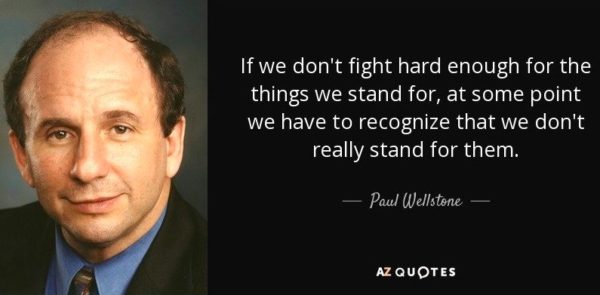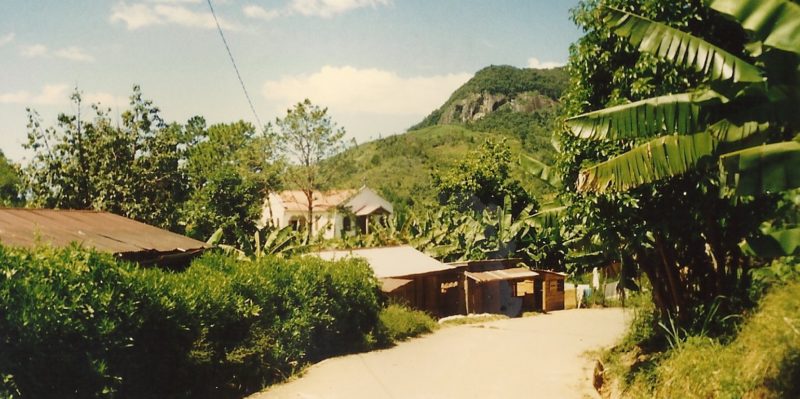I had a chance to have brunch last Friday with a fellow Macalester grad who works at the UN here in Haiti. I also had a chance to ride around town in a giant motorized shark cage on wheels. Both activities revealed more problems that Haiti needs to overcome before it can improve.
I’m searching for glimmers of hope that excite me and make me want to jump right in to some cool project. So far, all I’m finding is evidence that any project I might undertake will be rife with frustrating headaches that will make me want to throw my hands up and say why don’t you just fix things yourself if you’re going to be putting up resistance.
For me, I enjoy just being in places that are not quite so polished, a bit raw, places where government doesn’t micro-manage every aspect of our lives, where people expect to take care of themselves. The U.S. Virgin Islands had some of that character. You can also find it in the more rugged wilderness parts of America. There is a type of freedom in these places.
Haiti is definitely in that camp, but with its high population density, the negative aspects of this freedom start to emerge. When neither an official government nor an informal community effort is enforcing any of the most basic social rules or standards, then all of this personal freedom becomes a source of despair. This is what has occurred in Port au Prince. This despair fosters a culture where, not only do people stop relying on the community around them, but they also are not able to see how their community can become a source of fulfillment in their lives.
In addition to the rewards I can get from being in less polished places, I can also find rewards just from the culture of my workplace. But life can suck if you have a job where your efforts go unappreciated or where they are being undermined by the people you are working for.
My new friend, Stephanie, has been in Port au Prince since before the earthquake in 2010. She has one of those seemingly thankless jobs of trying to improve the efficiency of the political and nonprofit sectors in Haiti.
If you think about it, we grant a special legal status for corporations that designate themselves as being not for profit organizations because they serve an important service to society. Governments generally like the idea of having NGOs around because it reduces the burden on the government from having to provide those services. We like them so much we allow them to avoid paying taxes and people who fund these organization can deduct their donations from their taxes.
What Stephanie is fighting is a political culture that sees NGOs as just another source from which they can try to skim money. A big project she is working on is to try to help draft legislation that will prevent the government from trying to dictate who and how many Haitians must be on the board of directors of a non-Haitian NGO doing business in Haiti. As the leader of an NGO, nothing would make me want to give up on a country more than being told who must be on my board of directors.
It may be appropriate to regulate internal affairs of an organization when it is done to protect the investors in the organization. (Google “Alibaba Hong Kong listing rules” for an interesting perspective on this issue) It’s also appropriate for government to encourage specific NGO projects over other potential projects in order to coordinate all the NGO activities more effectively. But in the case of trying to dictate the membership of nonprofit boards of directors, their only motivation is greed. They want a board that can funnel money their way.
I was also told a story of hundreds of laptops being donated to a government agency, but most of them are still in their original box because the employees don’t want to do any extra work that’s not in their job description. Only two or three percent of the workers realize that they, themselves, are the source of any improvement they may want in their society. Its only these few people who are using their laptops to help them achieve that vision. Its this small minority that gives Stephanie hope.
In my last blog, I wrote about the lack of clean water and how this is the primary reason so many children were sick and dying. The good news is that there has been $60 million donated by the European Community specifically to improve access to clean water. The bad news is that even though this money has been available for years, it hasn’t been applied because the politicians can’t agree on how to divvy-up their personal cut. And so the legislation that is needed to start the clean water programs is not being drafted. Instead, the money is being diverted elsewhere, and is not likely it will ever be used for its intended purpose. In the mean time, people are dying. And the original donors are now much less interested in making future donations.
The frustration in the donor community is growing and the influx of money after the earthquake is drying up. Where that disaster once raised hopes of rebuilding Haiti into a more developed country, it now looks like an opportunity lost. When lots of big projects are implemented all at once, there is lots of room for corruption, overpayments, and for nepotism where family members are hired with no expectations for them to work much.
But the Haitian government is not the only one to blame for the ineffective use of funds. Back in the United States, people hear stories of how little of the post earthquake donation money has been spent so far, they see pictures of poor people and they demand that this money gets spent now. They want to see numbers, not results. I think he best use of this money is to put it into a long-term fund in which the rate of allocation is tied to the achievement of certain social, educational and health benchmarks. Let the local recipients decide how those benchmarked are met, and we can make ourselves available as consultants to suggest how these benchmarks might be achieved quicker. The incentive for using the current funds efficiently would be that an efficient use will result in benchmarks being met sooner, which will, in turn, result in more of the fund becoming available. It’s the same concept of using bonuses in a business environment.
Stephanie stated that much of the UN’s activities are being scaled back. Over the next couple of years the huge presence of military assistance, the advisors to city mayors on how to draft budgets, the civil engineers, and the advisors to the people drafting new laws, they will all be slimmed down to just a shell of their current presence. The Arab Spring has created new demands in another part of the world. Haiti’s days on the global limelight are behind it. Let’s hope the little signs of change over they past few years are enough to sustain continued improvements.
In the past, there were never roads being paved, now you see road construction here and there. The real estate market in the nicest neighborhoods is strong. The wave of killings and kidnappings that plagued past eras of political conflict have stopped. I saw a street parade the other day calling for the removal of the current president, Michel Martelly. They were singing and it was peaceful, with police redirecting traffic ensuring the security of the demonstrators. I thought to myself “Nooooooo, don’t try to remove him now. Even if you hate his policies, getting a government through the next election cycle is the single most important thing either side can do to help Haiti develop.” If Haiti can’t pass that test, then none of its limited current progress will be sustained.
Now enough with government, let me tell you about my afternoon in a shark cage.
A group of ten or so missionaries from Minnesota were at the orphanage I was staying at. They were here with an organization called Healing Haiti that primarily funds a fabulous orphanage called Grace Village north of Port au Prince. It’s a great complex with a church, medical clinic and even a small soccer field. They use any extra money they raise to help support other orphanages in the area. I asked if I could travel with them as they visited these other places. They said they had extra space on their tap tap so I was welcome to come along.
A tap tap is a brightly painted small pick-up truck with uncomfortable benches along the sides that will take you to the end of its route for 12.5¢ as it spews black exhaust sputtering down the road, and when you want to get off, you grab the old toothbrush or spoon that hangs on a string in the front of the passenger area and poke that instrument through a metal grate and “tap tap” it against the back window of the truck’s cab, the tapping sound will prompt the driver to violently swerve across two lanes of traffic, causing other vehicles to slam on their breaks and honk their horns, and when the truck stops you can climb across the knees of the other passengers and disembark. What the Minnesota mission group had was not a tap tap.
What they had was a large new cargo truck with the back fully caged-in, a door in the back would lock from the inside and there was a small six inch by six inch hole in the cage so you could reach out and lift the latch on the door. It had two rows of padded benches along the sides, hanging hand straps, a compartment along the front for everybody’s day packs and water bottles, two large jugs of clean drinking water and a duffle bag full of granola bars and fruit cups.
Our first destination was going to be a radio station that is part of a large church. Its like one of those mega churches with a large pavilion not too different from an outdoor concert venue in the United States, except Haitian style with faded blue USAID relief tarps filling the missing sections in the roof, people sitting in the rafters for a better view and banana, water and underwear venders scattered around.
As we turned up a hill, on the road to the church, we encountered a large crowd of people walking the opposite way, towards us. They were leaving the daily noon blessings at this church. Our truck had a hard time making any progress as we attempted to part the mass exodus of parishioners who were a tad bit irked that we were trying to drive up the hill when they would already be having a hard enough time walking through the vendors even without our truck blocking half the narrow dirt road. One of the women on our truck asked another woman if she was scared being stuck in the middle of this commotion. “Not yet,” was the reply.
We were not moving and I was getting hot and thirsty when I saw a vender standing on our truck’s back step holding a cold 7UP just inches from that six inch by six inch hole in our shark cage. I walked to the back of the cage and asked “How much for the 7UP?” A quick response from inside the cage instructed me not to buy things from the people outside the cage. The conversation continued something like this…
“Andrew, I know that you have been going out on your own in this town and have bought things out there, but we don’t want to do anything that might make people associate this tap tap with money in a way that could make us a target for getting robbed.”
Another of the Minnesota missionaries added “That’s why when we are out traveling in or tap tap we are careful not to take out or cameras or cell phones. They see those things that they don’t have and they learn to identify our tap tap with wealth and that just adds an unnecessary level of danger to everything.”
As I looked outside our cage, I saw three people holding their cell phones in their hands and a vendor wearing a ubiquitous red DigiCell smock selling cell phone minutes. And I wondered if the fact that we were all white might be a more reliable indicator that we might have things worth stealing than the fact that I wanted to buy a 7UP from some guy on the street.
I later learned that most of these one week missionaries were unaware that there was a difference between a Haitian dollar and a Haitian gourde because they are never given the opportunity to buy things for themselves on the street. Everything is handled for them, down to the duffle bag of travel snacks. They are being taught that Haiti is a scary and dangerous place best experienced from the safety of their secure “tap tap.”
I know there are certain precautions you need to take here that you might not take in Minnesota. I also understand that Healing Haiti doesn’t want anybody to get hurt on one of their trips, but the message they are sending is so skewed from the true reality that it does more harm to Haiti than all the good they are doing with their charity. The message they send to the world is don’t travel here on vacation, don’t allow your college’s students to come here to conduct research, don’t spend your money here (“except through your credit card donation to our charity”) don’t invest in new businesses here, and if you do come, don’t take the time to experience the culture because everyplace is so incredibly dangerous.
That’s my story for today, I’ve been without electricity for a while so I’m behind in my blogs. My next blog entry will cover a very positive and fascinating experience you won’t want to miss.




